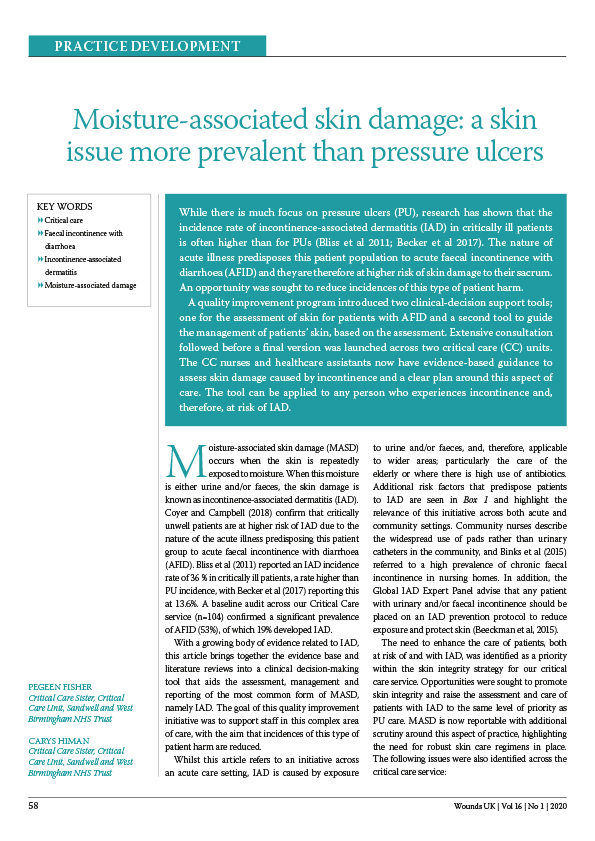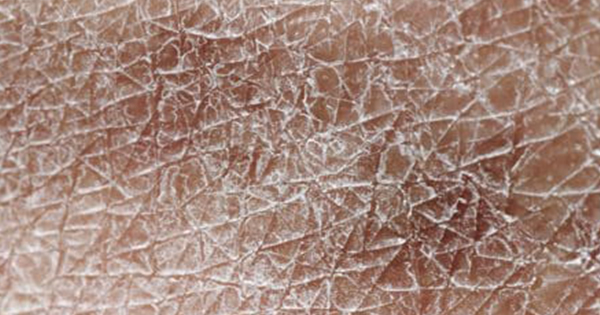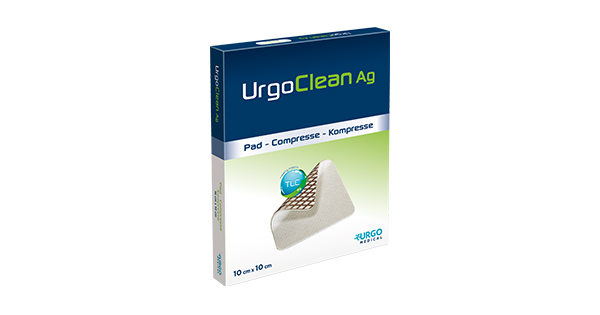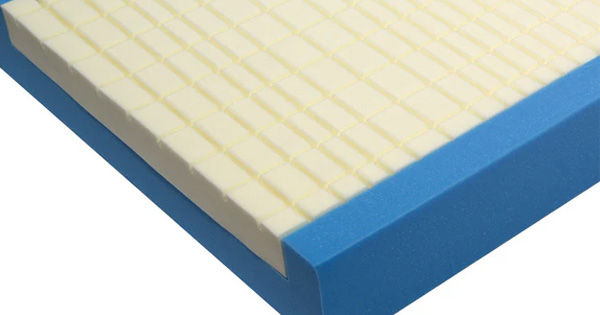While there is much focus on pressure ulcers (PU), research has shown that the incidence rate of incontinence-associated dermatitis (IAD) in critically ill patients is often higher than for PUs (Bliss et al 2011; Becker et al 2017). The nature of acute illness predisposes this patient population to acute faecal incontinence with diarrhoea (AFID) and they are therefore at higher risk of skin damage to their sacrum. An opportunity was sought to reduce incidences of this type of patient harm. A quality improvement program introduced two clinical-decision support tools; one for the assessment of skin for patients with AFID and a second tool to guide the management of patients’ skin, based on the assessment. Extensive consultation followed before a final version was launched across two critical care (CC) units. The CC nurses and healthcare assistants now have evidence-based guidance to assess skin damage caused by incontinence and a clear plan around this aspect of care. The tool can be applied to any person who experiences incontinence and, therefore, at risk of IAD.







